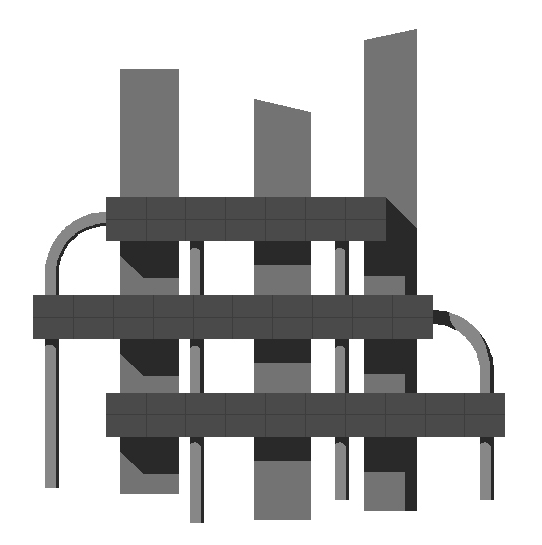|
Docente/i:
Ioanni Delsante
Yinan You
Denominazione del corso: Architectural composition 3
Codice del corso: 500905
Corso di laurea: Ingegneria Edile-Architettura
Sede: Pavia
Settore scientifico disciplinare: ICAR/14
L'insegnamento è caratterizzante per: Ingegneria Edile-Architettura
L'insegnamento è affine per: Ingegneria Edile-Architettura
Crediti formativi: CFU 12
Sito web del corso: https://www.facebook.com/groups/265503710230208/
Obiettivi formativi specifici
Architectural rules need to be updated to correspond to changed life, in order to support and improve new kind of relationships between people and their livable spaces.
It is evident the loss of importance for “traditional” urban collective areas, the increasing role of big multifunctional boxes like commercial malls, the weakening of closeness values and social solidarity. The architectural discipline must take into consideration these huge changes that affect very much the design activity.
It should take into consideration the comparison with material reality and the need of working on the architectural program. It must be affirmed the belonging of new urban settlements and regeneration processes to Architecture’s field, and the possibility to generate new spatial features, new settlement organization and, consequently, new contemporary social structures.
Programma del corso
"DesHyCom - Design for Hybrid Community"
coming soon ...
Prerequisiti
Tipologia delle attività formative
Lezioni (ore/anno in aula): 80
Esercitazioni (ore/anno in aula): 40
Attività pratiche (ore/anno in aula): 60
Materiale didattico consigliato
P. V. Aureli. The Possibility of an Absolute Architecture. MIT Press: Cambridge, 2011.
K. Nesbitt (edited by). Theorizing a New Agenda for Architecture. An Anthology of Architectural Theory 1965- 1995. Princeton Architectural Press: New York, 1996 . [pdf freely available].
A. Rossi. The architecture of the city. MIT Press: Cambridge, 1982.
O.M. Ungers, S. Vieths. The Dialectic City. Skira: Milano, 1997..
R. Venturi. Complexity and Contradiction in Architecture. The Museum of Modern Art: New York, 1977.
A. Bugatti, S. Zheng. Changing Shanghai. From Expo’s after use to new green towns. Officina Edizioni: Roma, 2011.
I. Delsante. Experimental architecture in Shanghai. Officina Edizioni: Roma, 2011.
I. Delsante. From research to design. Editrice Compositori: Bologna, 2012.
I. Delsante. Re-generation. Research, design, construction. Ed. La Triennale di Milano: Milano, 2012.
A. Bugatti. Underground design. In the dense city and in the landscape. Maggioli Editore: Santarcangelo di Romagna, 2010.
A. Fernandez Per, J. Mozas, J. Arpa. This is Hybrid. a+t: Rotterdam, 2011.
N. Bertolino. Toward Expo. Activating urban spaces in Milan. Maggioli Editore: Santarcangelo di Romagna, 2013. [forthcoming].
P. Rawes. Relational Architectural Ecologies: Architecture, Nature and Subjectivity. Routledge: London, 2013. [optional].
T. Cattaneo. Alvaro Siza. Emotion is the reason of architecture. Maggioli Editore: Santarcangelo di Romagna, 2012. [optional].
I. Delsante. Giancarlo De Carlo and the Faculty of Engineering in Pavia. Maggioli Editore: Santarcangelo di Romagna, 2012. [optional].
Modalità di verifica dell'apprendimento
Examination will be made by design groups together. It will concern the presentation and the discussion of the strategic program (made by maxi-group) and the project made by each group. Some more questions will be done (individually) about the topics explained during ex-catedra lessons and key-lectures by international guests, and finally about the bibliography. The final mark will result from the average between the project presentation and the oral examination.
|




![]()




![]()